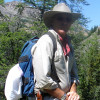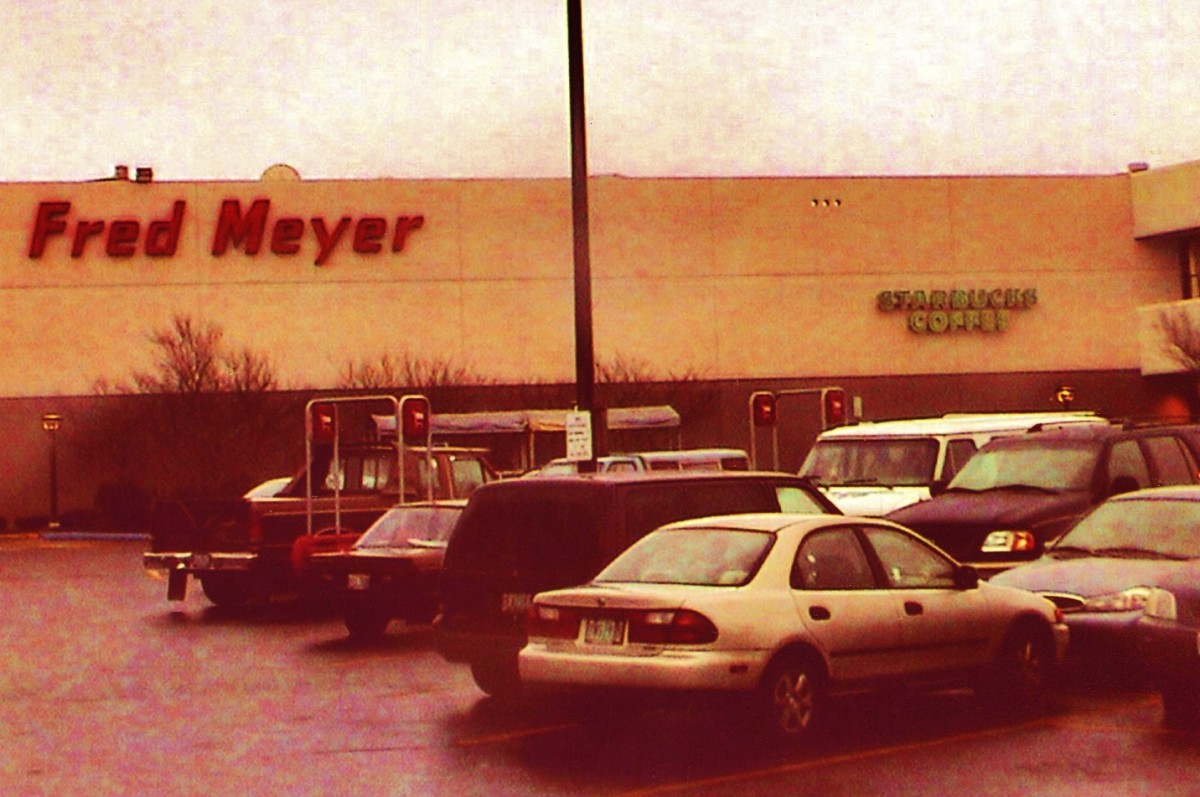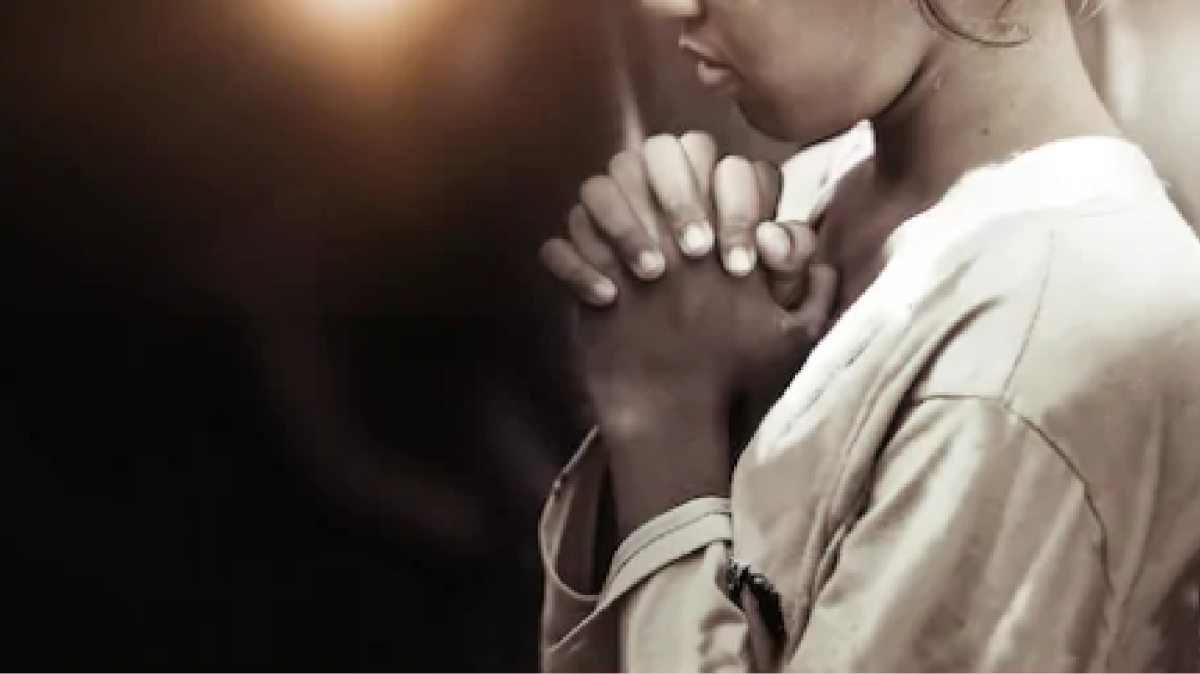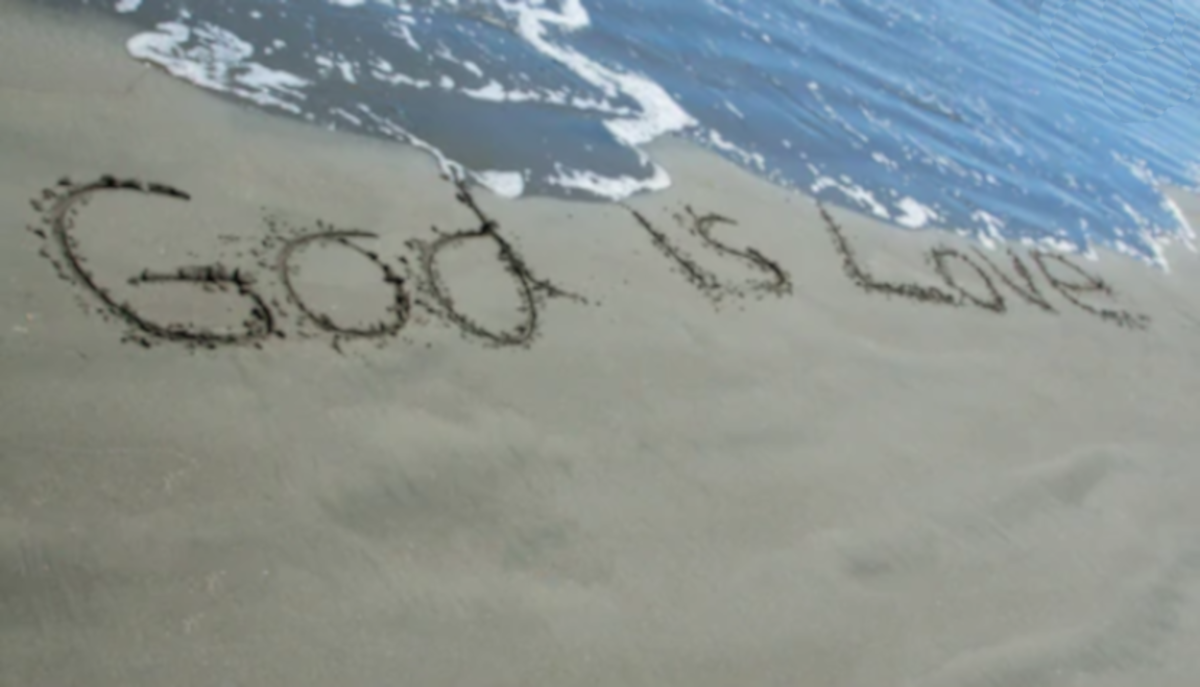"The Quiet' Shared Chapter Two
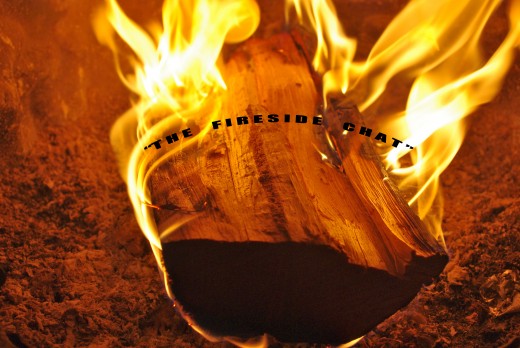
Hugs to All
Welcome as always to the Fireside... may you find some peace and rest here and above all find love. May even be a few hugs tossed in along the way.
First thank you all for the emails and messages of encouragement you have been sending. Here on HP and personal emails... they are always special.
We are in for a real blast of winter starting tonight. They are calling for heavy snowfall, high winds and dipping temperatures. Please bundle up warm and I will leave the outside light on for you. Know that you are truly loved and appreciated...
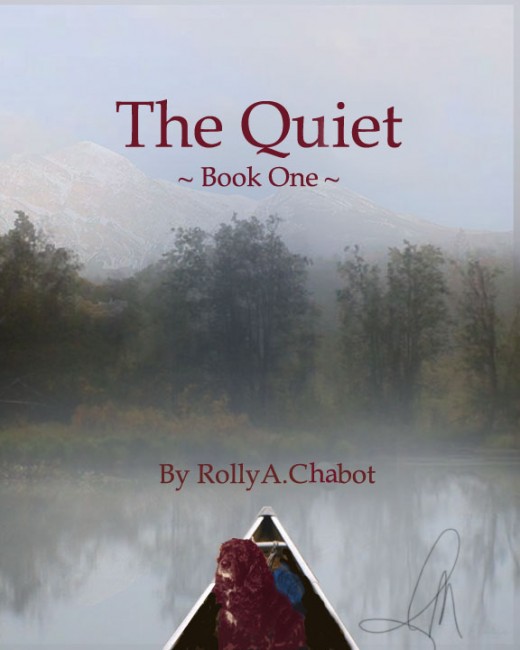
Chapter Two...The Quiet
Chapter Two
The Calm Before the Storm
Storms here in the wilderness teach you respect. They have a way of humbling you and making you realize just how small you really are.
Man often thinks of himself as superior to animals and nature. During the last 100 years, we can take credit for many accomplishments. We have defeated many devastating illnesses, invented a huge number of modern tools through the mistakes we have made and the things we have learned from history. We have even landed a man on the moon. The progress we have made in a century is incredible. Yet nature has a way of making even the greatest of men feel insignificant, when overhead, a crack of thunder rattles him to the bone.
Ifyoucount the seconds until the lightening you will know the distance of the strike; each second is the equivalent of a mile traveled. Then consider the result of that lightning most often is fire, and man runs.
I learn respect quickly as huge waves and a 16-foot canoe are not a great combination. I know the choice to make camp here tonight is the right one.
The winds are the first indication of a pending storm, along with other signs I’ve learned in the wilderness. Birds, animals and plants will tell you a great deal. Being aware of these things becomes second nature when you are in tune with your surroundings. Your survival depends on your resourcefulness. The outcome of any natural combat—like the storm on its way—depends on your knowledge of your surroundings and being constantly aware of the elements.
I speak from experience when I say that you are humbled.
The first time I was caught down here without any refuge, I was at the far end of the lake. It had been an unusually hot week. That morning, very similar to this one, there was a sense of something about to change in the weather. All the signs were there. The change in atmospheric pressure, the heavy humid air and the deep sense within that change was on its way. I found myself unprepared and spent a very cold, wet and lonely night with only my skills to depend on.
Making a shelter out of what is available is a learned skill, but when you are doing so in gale force winds, you call on God to help you through the night and in this case, the next three days.
Like an open book, nature has many secrets begging to be read and studied. Those who listen and watch, who become a part of their surroundings, can learn a great deal.
I spent considerable time with Johnny and his family in the Taggish native community over the years. Johnny was interesting and a wonderful teacher. He was a hard man to get to know, but once he trusted me, he became a wealth of information.
Johnny was a man of few words who walked with confidence, having a quiet peace about him. He was also very humble. He studied everything, processed it and simply adapted to it. Remember the upturned, low bush cranberry leaves I mentioned earlier? I learned that from Johnny.
One morning as we were walking, he stopped and knelt. With his weathered hands he gently ran his fingers over the leaves and grunted. That was his way of saying something significant. It was that simple. I had learned early in our friendship not to ask him anything. He would tell me in his own time.
This particular morning I simply knelt and did as he had done. I was so serious and he gave me one of those looks like, “What is that all about?” then proceeded to burst out in laughter.
Though rare, Johnny’s laughter was refreshingly real. It came from deep within. Though he did not show it, I think he laughed a fair bit on the inside over some of my antics, and on this particular morning he could not help but laugh out loud. We were two grown men from two different cultures laughing over nothing at all, laughing to the point of tears. Johnny laughed at me for my lack of understanding and I because I had caught him off guard. The exchange of laughter lasted a few minutes but brought a sense of freedom in our friendship. For Johnny, I think it was that he had someone to teach, and I had found someone to laugh with in a way that we had both forgotten how.
After we wiped the tears away and were sitting looking over the valley below, Johnny asked what I had seen when I brushed the leaves as he had done. All I said was “Berries.” That brought on another bought of laughter, then he shared with me that when rain is coming, the low bush cranberries turn their leaves up to help catch the moisture. That was seven years ago.
I spent many weekends with Johnny and his family and the others of the village. They were a very inviting community, but I learned early on that you never invited yourself. You were a guest in their world only if they chose to share it with you. And if they did, you were blessed.
The following summer was hard as there had been a tragedy that had taken the lives of three village members: a father, his youngest daughter and grandmother. They were all related to Johnny.
The mother and her five children survived. Originally a family of nine, reduced in a moment of time to only six.
A terrible loss no matter where you are or what culture you were born into. In addition, two small log homes had been lost by fire and a third badly damaged.
Johnny invited me out for the weekend. As I drove up, it was easy to see the determination on the faces of the villagers. The fire had taken place the previous Monday night. The community had mourned, laid the dead to rest, and it was time to start rebuilding in the morning.
The grandmother lost in the fire was called Ohkoma. She was a special lady and Johnny’s mother. She had seen many a tragedy in her day and had taught her family well. There was a time for mourning and a time for rebuilding and getting on with life.
Johnny and the community had done their mourning; the rebuilding was now to begin.
The Taggish Cree had a special way of building their log cabins. They were semi permanent, somewhat like the people they housed. These Taggish moved twice a year. They had a summer residence in the upper reaches of the St. Elias and a winter residence in the valley next to the Taggish River, which was their main supply of fish for their winter provisions. The move would generally take place in late August, as this was the best time of the year for the lake trout in the river.
The rebuilding was everyone’s responsibility. It was highly organized with each person knowing what his or her role was to be. I was the outsider, so I was delegated the responsibility of working with the women and children.
There was a structure to everything these people did. Each served an apprenticeship, and I was serving mine. I soon learned that log peeling was an art and the children were working circles around me.
Occasionally, I would catch Johnny looking over my way with the slightest smile on his face and there were odd bursts of laughter directed at me from all the men who were building. The quiet laughter was intimidating to say the least, but again, that sense of learning and calm would come over me, as Johnny caught my eye and simply nodded. His way of saying, “Hang in there. I have been there myself.”
The women and children spoke in Cree most of the time but smiled as they taught me the best way to pull the drawknife. The children scampered under the logs, collecting the bark, spreading it out to dry. Later it would be used to smoke the winter trout supply. They used low heat and smoke to preserve it.
By the end of the first day all the walls were up. Crude windows were cut and framed and the doorways were completed. The older women had been busy all day preparing a feast because now it was time to celebrate. After the meal, a special ceremony took place.
Each member of the community shared a gift for the new homes. It could be anything, from an extra spoon to an elaborately simple, yet expertly crafted piece of furniture. The sharing was simple; each person brought their possessions and then slipped away quietly until the family was left alone again.
Of course I was expected to share. My gift was a favorite hunting knife that I had spent several hours handcrafting. It went to the eldest son who was 14 years old and would assume the role of the man of the family until his mother remarried. This was a tool I knew would serve him well.
It was a solemn ceremony without fanfare, a mother in tears over the blessings that had been given to her, left to mourn her loss, yet comforted by the generosity of others. As I watched, I was once again astounded by the simplicity of this life. I was deeply touched by their willingness to share as they came together as a community.
What was the glue that held them together? Was it a need for survival or was it truly sharing from the heart? It went far beyond what we understand in a world that we call civilized. It came from deep within each person and was passed down from generation to generation. It was love, and this love was pure and uncomplicated.
The following morning started with each person assuming the role they had the day before. I was promoted to collecting muskeg moss to be used on the roofs.
By nightfall the cabins were complete. There was another celebration. It was a way of thanking their creator for all He provided. It was their own way of sharing in celebration for the lives that had been lost, as well as the bounty the Creator had provided in the rebuilding process. The simplicity of their lessons had been passed on from generation to generation and; it was a blessing to watch them unfold. I am so blessed to have spent time with these people.
The rain of the day was soaking me and brings me back to reality. The afternoon has changed again and again as the wind increases considerably. It has started to rain heavily, and I need to secure the camp better before nightfall. I have to place another groundsheet down and dig a trench around the base of the tent to divert the water. The rock wall behind has already become a miniature waterfall. It is best to get the canoe up on high ground and turn it over to keep the rain water out. I dig a trench and will have a dry bed and turn the canoe over. These are two lessons I learned quickly the first year as I was trying the new tent out.
It has to be staked to the ground and tied to a tree in case we have to leave before it is properly anchored. I learned that the previous year; always stake down your tent in a storm.
That day, as I turned to get the stakes, the wind caught the tent and as if in slow motion it made two flips and ended up in the lake! It must have looked comical in weather like that.
It was a good thing I had everything zipped tight, and that it floated as long as it did. With little time to think I shoved off in the canoe with no life jacket, four-foot waves and rain coming down on me. I was chasing the tent down the lake with Tannis barking from shore. She must have been confused, probably thinking I had a lot of nerve to go fishing without her.
That little ordeal resulted in a two-hour trip back to camp. Paddling was all but impossible, but through sheer determination and the need for a dry place to sleep, I made it back. Not to mention the thought of losing all that money this tent had cost me. Of course Tannis greeted me with her usual foul kisses. That night the meal was cold bannock and a can of cold beans. And I got very little sleep. By morning the weather had cleared, but what a night!
I have a feeling tonight will be another such night, so I have to batten down the camp. There is no need to even think about starting a fire because nothing will burn anyway. I guess that’s why man invented the Primus Stove. What a great invention and life-saver it is. Tannis watches and must be thinking, ‘Canned Stew For Two’ as she sits in this little space intently looking on. After all, thereis food involved.
The wind has increased and once again the air temperature drops. It is almost cold enough that we may get hail or snow. It certainly has happened before.
I was back in the high country about 40 miles or so south of here a few summers ago. It was mid July and I was doing some contract gold prospecting for a Vancouver firm.
I was in an area called Hunchback Creek, at an elevation of 3800 feet. The day had been cold and damp and no matter what I put on for clothes, I was cold. I had been in the area a few years back and found an abandoned trappers cabin that had a still functioning tin stove in it. There were no windows left in it, but a little plastic took care of that. The roof was close to falling in, but it provided shelter and warmth. According to the gnawing on the floorboards, I would be staying as a guest with the resident porcupine, another dear friend of old faithful Tannis. I would like to say with some certainty, she learned her lesson the last time, but with her there is no telling.
We were living well that night. What a bonus. A stove, some fresh spruce bows on a very dilapidated bed frame and somewhat of a door on the place. It was about eleven o’clock when I finally lay down. I was well fed and finally warm. Tannis snuggled in at the foot of the bed and all was well in my world.
It had started to snow about ten o’clock and the temperature was still dropping, but tomorrow was another day, so I fell into a deep sleep.
I heard a few cracking sounds during the night and thought very little of them but at 3 a.m. there came a loud crack and a cascade of snow that certainly got my attention! One side of the roof had caved in. There sat my stove, now a steaming pile of rubble. Snow had spread throughout my comfortable home. Thankfully the roof fell in on the far side of the cabin and not where we were sleeping.
Tannis started barking and when she saw I was awake proceeded to cover me in those horrid kisses.
A quick look outside revealed close to twenty inches of fresh and very wet snow. I made morning coffee the old fashioned way on an outside fire, as the safety of the cabin was in question. So the day started early. I loved these Yukon summer days, if this was what you called summer.
The sun had barely dropped below the horizon when it started back up again. "The land of the midnight sun" was true to its name. June 21st was the longest day of the year and most people would celebrate all night. Bars would be open 24 hours a day and the town would be abuzz. It was not a place I wanted to be again. I had been there and done that scene. I would take this any day over the memories of those.
You can make a wonderful fire starter at home; it is a must in wet conditions. I take a paper egg carton, fill each holder with dryer lint and shredded paper and fill them with melted wax. After they have cooled I break off a holder, set twigs over it and light it. I have instant fire. Tannis always had to be close enough to the fire that I could smell her hair getting hot.
After several days in the backwoods, her dreaded bath at home was always a must. She hated it and always made certain I knew about it, curling her lips and growling the entire time. But after the bath was over she became a puppy again, running and barking. It was time to play.
One day we arrived at one of the smaller lakes and while I was getting the canoe ready she wandered off. I never paid much attention too her. When I called she came running back all covered in what turned out to be the remains of a dead and rotten fish. The smell was horrid!
Much to her dismay, it was into the lake with Sunlight Soap and a trail of bubbles that revealed the direction of the wind. It’s a good thing Sunlight Soap is biodegradable. I was laughing and she was growling. Did she learn? Nope. She had to have another bath later that night because she got into it again. It must be a dog thing to mask their scent. Crazy dog.
Tannis knew a few words that would perk her up like ‘Truck Ride.’ That was a serious one at any given time. “Ice Cream” was another. It meant a serious treat was coming.
We lived 12 miles outside of Whitehorse on the Alaska Highway across the road from the Wolf Creek campground. I had purchased te land and built a cabin there years ago. It was a picturesque building site that had an incredible view of the Golden Horn. It was considered a mountain, but in comparison with the St. Elias mountain range it was somewhat of a drab hill.
I worked in Whitehorse at the time as a Maintenance Engineer at Sheffield Hotels. After a few years I quit the comp[any and lived off the proceeds of a company I had sold. It afforded me to go away for long periods of time and live in these remote locations.
Most days while I was still working I would be gone for long periods, leaving Tannis home during the day. Keeping her entertained was easy. We had a squirrel that lived outside dubbed with the name ‘Sammy’.
The sliding glass door that led out to the patio provided the best spot to place a twelve-inch slab of a tree. It became a smorgasbord of treats made up of trail mix for Sammy and entertainment for Tannis. It kept her on her toes. She would sit and watch as Sammy—only inches away–taunted her to no end. At the end of the day there were a line of what I called dog snots, since Tannis would have her nose against the window until the smorg ended.
Sammy gained much weight during the time we lived there. Oh how Tannis hated that squirrel. She went on a beeline to get to him when I came home and let her out.
© All Rights Reserved
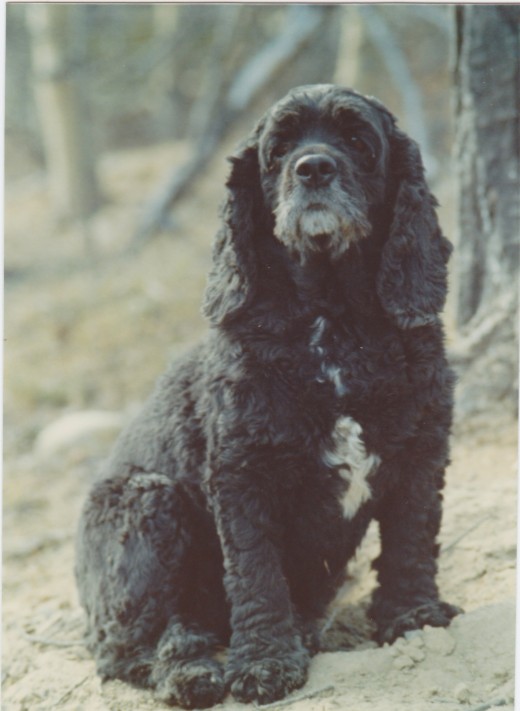
Tannis
This is Tannis Mountain. A rescue dog that I later learned was a purebred registered dog. I was looking after the Humane Society at the time in Whitehorse and got a call late one night. "Come and get this dog or I will kill it.?
She was close to wild, very abused and very hard to handle... she bit me several times that night before we arrived back home. Two days later I took her to the groomers and after that we were inseparable... I had her as a constant companion for the next 14 years.
So for those who have asked...this is Tannis
Link to Chapter Three
- “The World of Quill”
- Amazon.com: Rolly A. Chabot: Books, Biography, Blog, Audiobooks, Kindle
Visit Amazon.com's Rolly A. Chabot Page and shop for all Rolly A. Chabot books and other Rolly A. Chabot related products (DVD, CDs, Apparel). Check out pictures, bibliography, biography and community discussions about Rolly A. Chabot
